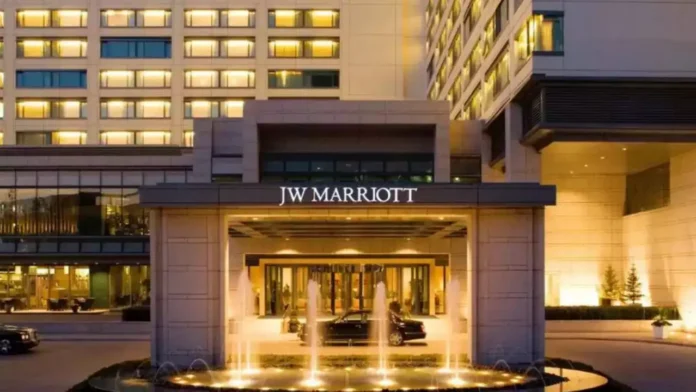India continues to be a ‘shining star around the world’ in terms of growth opportunities for Marriott International, according to a top executive at the planet’s largest hotel chain by number of rooms. Rajeev Menon, president of Asia Pacific excluding China for Marriott International, stated that about 80% of the new deals in India are in the luxury and premium space, which marks a difference from the pre-Covid era.
“Before the pandemic, we witnessed growth primarily in the upscale segment, particularly for brands like Courtyard and Fairfield by Marriott,” stated Menon. “Having established our presence in this country over the past 25 years, we’re excited to announce the opening of our 150th Marriott hotel in Katra next month, situated near the Vaishno Devi temple. This milestone marks the inauguration of Katra’s first five-star hotel.”
“We’ve signed the latest JW Marriott Resort & Spa project for Alibag.” Our Ritz Carlton property, which we signed in Jaipur just a few weeks ago, will be a spectacular 250-key hotel stretched across 43 acres of land. We have over 80 hotels under development and are well-positioned to run 250 hotels and 50,000 keys in India within the next five years,” he added.
Menon expressed Marriott’s optimistic outlook on the long-term prospects, noting India’s economic transition from the fifth largest to the third largest economy in the world within the next five years.
Continue Exploring: Hotel giants bet big on India: Radisson, Marriott, Hilton, IHG, and Wyndham compete in intense race for expansion
Since last year and year to date, Marriott International has inked 30 deals in South Asia, comprising over 5000 keys. Of these, 28 deals are specifically for properties in India.
Shawn Hill, Chief Development Officer for Asia Pacific (excluding greater China) at Marriott, expressed that while the company anticipates achieving record-high signing figures in India this year, it also hopes for a slight relaxation in the lending environment and a reduction in the number of permits necessary for hotel construction.
“I believe it takes approximately 100 permits to make a hotel operational here, which differs from our experiences in other markets. Additionally, the land and construction costs are notably high,” he elaborated.
Menon highlighted that the company has been advocating for enhancements in the licensing and lending environment, as well as for streamlined single-window approvals, both collectively with the industry and individually, for some time. He emphasized that this is an ongoing effort that requires continuous attention and work.
“We’ve been continuously pushing for the industry to be granted infrastructure status in most states, as this could significantly improve the lending environment,” he went on to say. “I frequently encounter a question such as: How do we justify the record-high rates in India?”
“You have to juxtapose this with mature markets in the West, where loans are typically granted for longer periods,” he explained. “In India, due to the high land costs, we’re typically limited to 15-year loans, with interest rates hovering around 10.5-11% at best. When you examine the financial model, it indeed presents challenges. If your hotel takes four to five years to build, it further compounds the financial sustainability challenge.”
Continue Exploring: Marriott International bolsters commitment to South Asia with addition of over 4,600 rooms to development pipeline, unveils expansion plans for 2024
Marriott currently operates in over 40 cities across India and has recently inaugurated new hotels in Gorakhpur, Siliguri, and Shillong. The company observed a remarkable 35% increase in revenue per available room in India last year compared to 2019 levels, and it continues to experience double-digit growth this year too.
Hill mentioned that the company has also witnessed unprecedented signings in other Asian markets like Indonesia, Vietnam, and Japan last year. “We’re witnessing significant momentum throughout the entire region this year,” he emphasized.





